COPE° Attends Houston Seminar on Tackling Drug Smuggling in the Maritime Industry
HOUSTON, TEXAS – COPE° attended a seminar on 9 January 2024 hosted at the U.S. Coast Guard Sector in Houston-Galveston, focusing on the collaborative efforts needed to combat drug smuggling on ships. Titled “Drug Smuggling in Ships: Fostering Law Enforcement and Trade Collaboration,” the event brought together key figures from law enforcement, trade, and maritime industries to address the challenges of this topic and to propose practical solutions. This seminar was a collaboration between COPE°, BIMCO, the International Organization of Airport and Seaport Police (INTERPORTPOLICE), the World Shipping Council, InterManager, and Northeast Maritime Institute.
In the Keynote Address, Bud Darr, Senior Vice-President of the Mediterranean Shipping Company, emphasized the necessity for increased collaboration between government and industry. Highlighting the cost associated with implementing technologies, he stressed the need for performance-based regulations. Darr advocated for a broader approach to collaboration, focusing on shared information, feedback, and tactics. He also addressed the broader societal impact of drug cartels and called for serious judicial repercussions.
Chris Trelawny, Deputy Secretary-General of INTERPORTPOLICE, presented on Fostering Law Enforcement/Trade Cooperation. In his presentation, Trelawny delved into achieving Sustainable Development Goal 16 in ports, promoting multi-stakeholder engagement, and viewing maritime security as a revenue generator. The session aimed to improve collaboration, decrease narcotics quantities, prevent seafarer abuse, and reduce ship detentions. Recommendations included increased threat information sharing, updating guidelines, and addressing the “us vs. them” mentality.
Session 1: Seafarers and Shipowners in Trouble, moderated by Jakob Larsen, Head of Maritime Safety & Security at BIMCO, focused on the challenges faced by seafarers and shipowners. Stories were recounted by multiple panelists of the unfairness of treatment of crews and captains pertaining to the unknown transportation of drugs on board ships and many highlighted the long periods of time taken to resolve these issues. This further brought up the topic of establishing a new culture of trust and whistleblowing within the industry.
In Session 2: Combatting Drug Trafficking in the Container and Liner Supply Chain, moderated by Dr. Ian Ralby, CEO of I.R. Consilium, speakers discussed technology enforcement, information sharing, and the need for comprehensive security systems. Attention was given to combating drug trafficking in the container and liner supply chain, including insights from key industry players.
Session 3: Obtaining and Utilizing Data, moderated by Chris Trelawny, focused on obtaining and turning data into actionable intelligence. Participants highlighted the importance of a data collection center, determining relevant information, and the need for standardized reporting. The emphasis was on sharing information about bad actors to enhance overall maritime security.
Finally, Session 4: Frontline Challenges and Practical Solutions, moderated by Joe Kramek, consisted of discussions about practical solutions to the comprehensive frontline challenge. The challenges faced by port facility security officers and vessel security officers were addressed, with an emphasis on clear communication and information flow. Various industry experts provided insights into security measures, audits of terminals, and diplomatic channels.
Chris Trelawny concluded the event by summarizing the key discussions and emphasizing the importance of sustained collaboration, reinforced communications, and coordinated actions. The need for global concern, private initiatives, and support from authorities was reiterated.
The event showcased a comprehensive approach to tackling drug smuggling, emphasizing collaboration, technology, and proactive measures to secure the maritime industry against criminal activities. With this in mind and an overall consensus for the need for greater collaboration, we feel that COPE° can provide a much-desired platform to facilitate more conversations on this issue. By hosting these discussions through COPE°’s Working Group on Peace and Justice: The Unjustified Criminalization of Mariners, we feel that much needed change of the guidelines and culture of this issue can be achieved. COPE° believes that with the momentum of this seminar, these important conversations can contribute to the protection of seafarers and societies against organized criminal networks specializing in drug smuggling.

